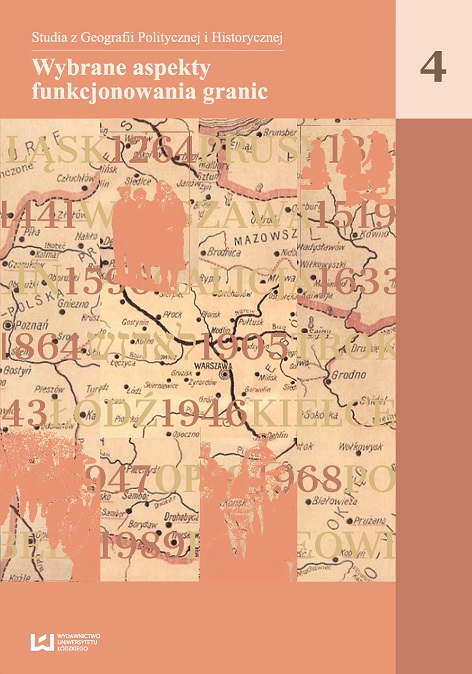Granice polityczne a turystyka
Political boundaries and tourism
Author(s): Gerard KosmalaSubject(s): Politics / Political Sciences, Politics, Social Sciences, Geography, Regional studies, Sociology, International relations/trade
Published by: Wydawnictwo Uniwersytetu Łódzkiego
Keywords: granica polityczna; turystyka; pogranicze; boundary; borderland; tourism
Summary/Abstract: Granice polityczne są przedmiotem badań geografii politycznej. Pomimo globalizacji i innych procesów nie tracą one na znaczeniu. Mają wpływ na wiele dziedzin życia, w tym i turystykę. Celem tego opracowania jest próba uporządkowania wiedzy na temat wzajemnych relacji pomiędzy turystyką a granicami politycznymi. Problematyka ta była podejmowana przez wielu autorów na świecie, jednak w Polsce nie spotkała się dotychczas z większym zainteresowaniem. Omawiane relacje można umownie uprościć do wpływu granic politycznych na turystykę i turystyki na granice polityczne. W każdym przypadku wpływ ten może mieć charakter pozytywny bądź negatywny. Wpływ granic politycznych na turystykę widoczny jest w tym, że stanowią one barierę w podróży, służą kontroli ruchu turystycznego, wpływają na koszty i zróżnicowanie środowiska geograficznego oraz przyczyniają się do likwidacji pewnych zjawisk. Granice budzą zainteresowanie turystów ze względu na to, że istnieją oraz z powodu formy swojego istnienia. Samo pokonywanie granicy jest intrygujące, tak samo jak materialne i niematerialne elementy związane z granicą, zarówno obecne, jak i historyczne. Ponadto granica przyczynia się do powstania innych zjawisk, które budzą zainteresowanie turystów. Turystyka również ma wpływ na granice polityczne, jednak wydaje się, że ma to mniejsze znaczenie. Turystyka może wpływać na uproszczenie procedur granicznych i zmiany w infrastrukturze na granicy. Przyczynia się do zmian w krajobrazie, najczęściej z pozytywnymi efektami, oraz rozwoju różnorodnych zjawisk na pograniczu, co może prowadzić do powstania swoistej atmosfery pogranicza.Political boundaries are the subject of research in political geography till the beginning. They are still of vital importance, in spite of globalization and similar phenomena. A boundary affects various areas of life, including tourism. The aim of this paper/study is to considerate and highlight interactions between political boundaries and tourism. It attracts much of the attention of researchers in many countries, but in Poland there are very few scholars engaged in that field. Relationships between political boundaries and tourism one can simplify to the impact of boundaries on tourism and, on the contrary, tourism on political boundaries. In each case, the impact may be positive or negative in nature. Political boundaries are not only barriers to tourist movement, but they are also used to control travelling people, affect costs, and contribute to the diversity of geographical environment. Furthermore, borders can also block some investments or even cause social or physical phenomena (because of military and strategic reasons). They attract tourists on their own due to their forms, shapes and special features. Border crossing is intriguing in itself as well as because of material and immaterial, contemporary and historical items connected with a borderline. Moreover, a political boundary may lead to the emergence of a variety of other things, which can be tourist attractions. As it was stated above, political boundaries affect tourism, but tourism also has some impact on political boundaries, although its importance is probably minor. Tourism can influence the simplification of border procedures and the improvement of border infrastructure. Besides, tourism can contribute to the transformation of landscape in the borderland and the development of various phenomena, which may result in the creation of the peculiar borderland atmosphere.
Journal: Studia z Geografii Politycznej i Historycznej
- Issue Year: 2015
- Issue No: 04
- Page Range: 169-200
- Page Count: 32
- Language: Polish

